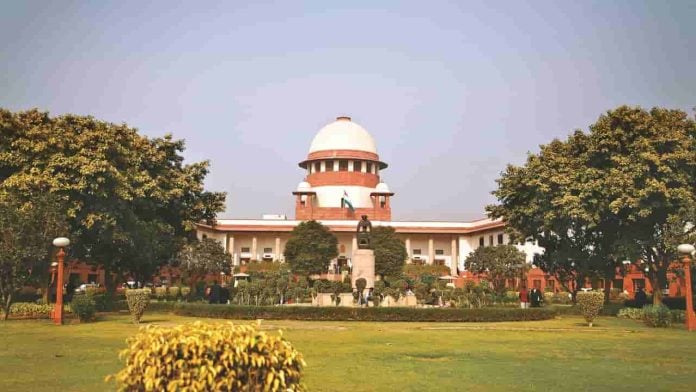The Central government told the Supreme Court on Friday that the electoral bonds scheme floated is solely for the purpose of funding political parties and is transparent in nature.
The Solicitor General (SG) Tushar Mehta, who appeared for the Central government told bench of Justice BR Gavai and Justice BV Nagarathna that there is no scope for black money in the electoral bonds scheme.
The Solicitor General contended that the methodology of donation is so transparent, it is impossible to get black money..It is most transparent and to say it strikes at democracy is wrong.
Solicitor General said the same when he was responding to an argument made by advocate Prashant Bhushan which was that donation strikes at the root of democracy.
Prashant Bhushan had said that these issues strike at the root of our democracy. We have challenged amendments allowing electoral bonds, unlimited donations even by subsidiaries and retrospective changes to Foreign Contribution Regulation Act.
Another Senior Counsel Kapil Sibal who appeared for the petitioners argued that the matter should be heard by a larger bench in view of the importance of the issues raised.
The Court said that it would first hear the matter before referring it to larger bench.
Justice Gavai said that first we will hear on that. The bench then asked the parties when it should list the case.
Attorney General R Venkataramani said that there is no pressing urgency and requested the Court to list it in January 2023.
Hearing the Attorney General R Venkataramani , the three senior advocates Bhushan, Sibal and Sanjay Hedge pointed out that elections to Gujarat would be announced today and hearing in January would mean more sale of bonds.
The SG reminded them that there is a Constitution Bench which will sit in November.
The Court eventually proceeded to list the case on December 6.
An electoral bond is an instrument in a form of promissory note or bearer bond which can be purchased by any individual, company or association of persons having the citizenship of India.
The bonds, which come in different denominations, are issued for the purpose of contribution funds to political parties in its existing scheme in the country.
The pleas challenging the scheme were mentioned in April this year by advocate Prashant Bhushan before then Chief Justice of India (CJI) NV Ramana who promised to list the matter, however this could not be possible.
Electoral bonds were introduced through Finance Act 2017, which in turn amended three other statutes – the RBI Act, the Income Tax Act and the Representation of People Act – for enabling introduction of such bonds.
The Finance Act, 2017 brought a new system of electoral bonds to be issued by any scheduled bank for electoral funding.
The Finance Act was passed as a money bill, which meant that it did not require the assent of Rajya Sabha.
Various petitions are pending before the top court which challenge at least five amendments made to different statutes through Finance Act 2017 and Finance Act 2016 on the ground that they have opened doors to unlimited, unchecked funding of political parties.
Petition has been filed in the same regards by Association for Democratic Reforms and Common Cause which alleged that the money bill route was adopted in order to bypass the Rajya Sabha, as the ruling BJP government does not have a majority.
The petitioners have also submitted that the consequence of the amendments was that annual contribution reports of political parties to be furnished to the Election Commission of India need not mention names and addresses of those contributing by way of electoral bonds, thereby killing transparency in political funding.
Another challenge that has been posed is the removal of the cap on donations by the amendment to the Companies Act, 2013 and the amendments made to Section 236 of the Foreign Contribution (Regulation) Act, 2010.


